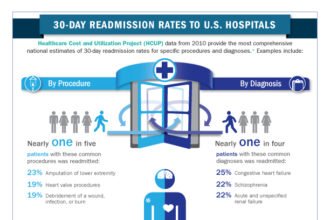

The Patient-Centered Medical Home (PCMH) Model is a new approach which seeks to enhance care coordination and community-based care.
To learn more about how health care data fits into the PCMH model and how the new approach will help seniors, we spoke with PCMH specialist Melissa McCormack of Software Advice, a source for medical systems comparisons.
How does home care fit into the PCMH model?
The PCMH model is all about putting the patient at the center of care. Under traditional fee-for-service models, doctors have no incentive to follow their patient’s health outside of the office, because they receive no compensation for doing so. But the PCMH model rewards doctors for keeping their patients healthy, which incentivizes them to monitor their patients’ health not just in the office, but at home, too.
Today there are systems like eCaring that allow doctors and care managers to monitor a patient’s care at home, in real-time and send data to everyone involved. This helps doctors follow their patients’ health outside of the office, not just during whatever health crises brings them into the doctor’s office. Since patients tend to spend the vast majority of their time outside the doctor’s office, these types of tools give doctors a more complete, timely picture of a patient’s health.
How does PCMH serve to improve care for the elderly and people with chronic conditions?
People with chronic conditions see a huge amount of value from the PCMH model of care – and that includes the elderly, because they tend to have more chronic conditions than the young (and often multiple chronic conditions). A main tenet of the PCMH is to coordinate care across all providers involved in treating a patient. An elderly patient might have a primary care doctor, plus a few specialists, plus maybe emergency room visits – lots of fragmentation among the people delivering their care. The PCMH model makes the primary care physician the “coach,” and incentives the PCP to coordinate with all other providers so that nothing slips through the cracks. Technology helps streamline communication between providers and ensure they’re all on the same page, instead of each working from their own playbook. For example, if Betty Smith misses her appointment with her cardiologist, her PCP is alerted, and someone from her PCP’s office may call Betty to find out what’s going on.
What benefit does having real-time home care data have for advancing PCMH?
Simply put, the more data a doctor has, the clearer his or her picture of a patient’s health is. Take our example of Betty Smith. Let’s say she has hypertension. If she can transmit her blood pressure in real-time, from home, to her doctor on a regular basis, her doctor may be able to pick out patterns. Maybe her blood pressure is higher at a certain time of day, and he can ask questions to identify possible triggers. Additionally, he can notice trends over time and intervene more quickly. Maybe her real-time data shows a slow-but-steady rise in blood pressure. Rather than wait until her next scheduled office visit, the doctor or someone from the doctor’s office could contact Betty to intervene as soon as they notice a problem, which could save her a trip to the emergency room.
In general, how does technology aid care coordination especially for the elderly and those with chronic conditions?
Perhaps most importantly, technology simplifies the communication that needs to happen between the providers involved in patient care. Rather than having to fax over paperwork and manually keep track of when a patient is due for what, technology can enable seamless sharing of patient records and medical history, medication lists, and other important details. It can also trigger alerts (such as alerting a primary care doctor when a patient misses a visit with a specialist). And, it can allow providers to collect and quickly analyze data to identify trends over time, which is especially helpful when following a patient with an ongoing health concern – i.e., a chronic condition.







